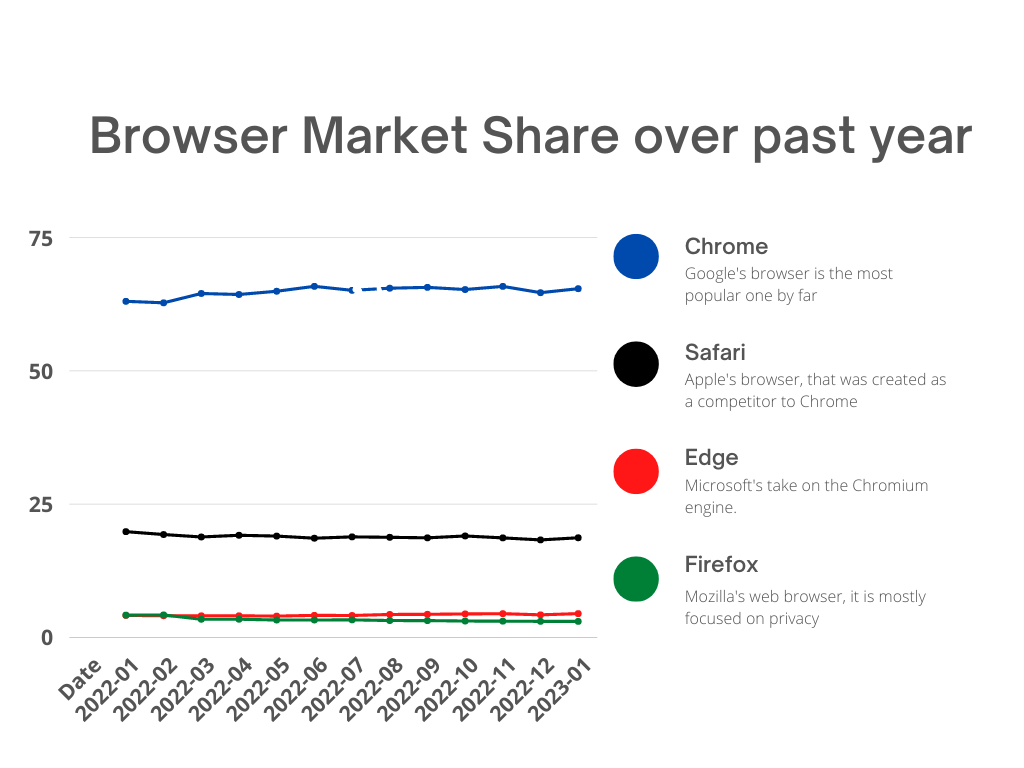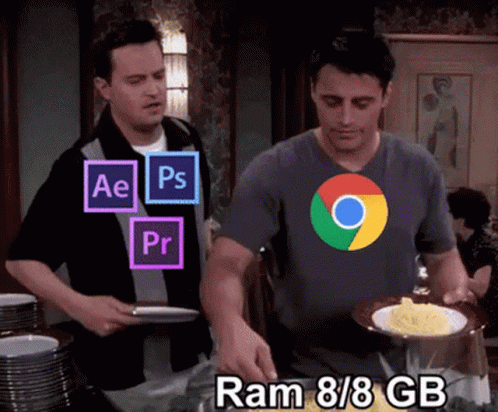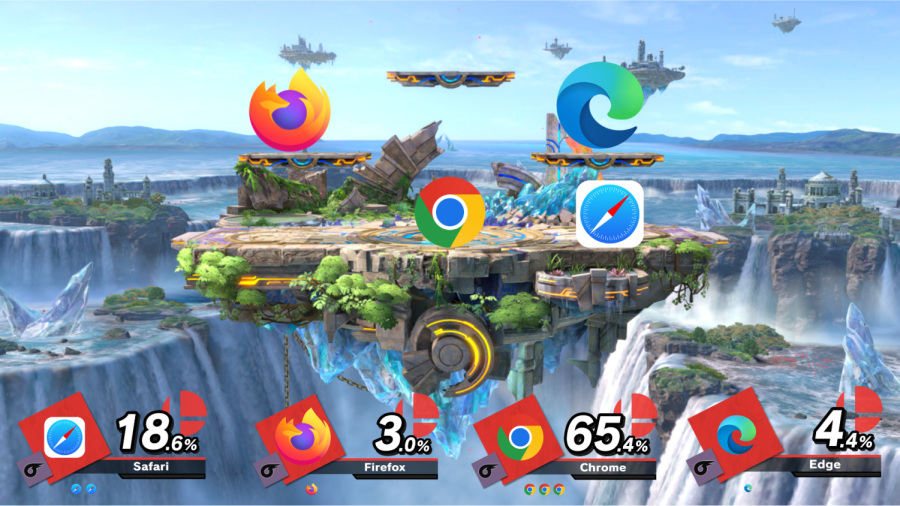The many problems with Chrome
It’s time for Chrome’s Browser dominance to end
Chrome is synonymous with web browsing. In fact, Chrome has 65% of the browser market share. While the nearest browser competitor is Safari with 20%. Many people use Chrome because it’s pre-installed on their Android phones. People also use it because it’s just faster and more stable (unlike Internet Explorer). I used to use Chrome in fact, at one point it was my main browser. However, I did end up switching for multiple reasons, and why you probably should, too. Allow me to explain.

Chrome has quite a few issues, for example, it has many privacy issues, and most famously, it uses a lot of your computer’s memory, and finally it’s riddled with vulnerabilities. Starting with its privacy issues, Chrome is owned by Google, and Google is at first, an ad company, then a software company. This means that Google will do whatever it takes to earn money by tracking you and showing you ads. While Chrome users can install an ad blocker, that won’t be the case for much longer. In other words, Ad-blockers are going to go the way of the Dodo. Chrome extensions use an extension system called manifest, and there’s a new version of manifest coming. Manifest V3, will remove many of the older extensions that are around and will also break how these ad blockers work.
This paragraph might sound like an ad for another browser, but it’s not. I’m not sponsored. While ad-blockers might be going bye-bye in the near future, there will still be web browsers that support them. For example, Firefox will still support ad-blockers. On the blog for Mozilla, the non-profit that owns Firefox, they state “Firefox’s implementation of Manifest V3 ensures users can access the most effective privacy tools available like uBlock Origin and other content-blocking and privacy-preserving extensions.” Chrome has even faced backlash from the Electronic Frontier Foundation, an organization that defends civil liberties online. They believe that Manifest V3 will hurt privacy, security, and innovation.
Another privacy problem with Chrome is, that it also collects all of your personal data. In other words, Chrome knows you pretty well. It’s always watching you, and even if you go incognito, the browser still tracks you across the web. In fact, a lawsuit is pending against Google for not informing it’s users on what incognito is and how it works. It’s actually a myth that Incognito is private, your internet service provider, school, or work could still see what you are searching for in incognito if they wanted to.
Earlier I stated, that Google is an ad company first, and it’s true. For example, It uses data from all Google services, to form a pretty accurate picture of who you are. It can use your location history from Google Maps, what apps you use on the play store, and what you buy with Google Pay, to get to know who you are. While many of us want our browsers to be personalized towards us, is it truly worth if everything you’ve ever searched, or everywhere you’ve ever been is not private? If you truly care about your privacy, there are browser’s out there that do protect it. Google always knows your personal IP address, even if you do use a VPN. Every little thing you do is tracked, and sent to Google Some of us want some information is private, and if Google is always tracking us no matter, then that’s an issue.

The next problem with Chrome isn’t necessarily privacy, but a hardware issue. Chrome uses a lot of memory. Chrome does this so it can make the web browser faster, and I agree that Chrome is a fast browser, however it doesn’t need to take up so much memory. Browsers such as Edge, Firefox, and Opera, are all still fast and still use less memory than Chrome. These browsers also suck less battery life out of laptops. These browsers don’t have so many processes running in the background, which means fewer things running, which equals less work your computer has to do, which gives you more battery. Chrome did update its browser with a memory saver and battery saver mode. However, that doesn’t solve the overall issue of Chrome being a memory hog. On top of that, these web browsers nowadays aren’t slow by any means, and they use less memory, in fact, the speed difference between these browsers might be milliseconds. They’re all extremely fast.
In Chrome’s Defense, it uses all of that memory for your convenience. Chrome does a little magic that splits each tab and extension you have into its own process, that way, if a tab crashes, your entire browser doesn’t crash. That’s one of the reason’s Internet Explorer failed, it ran the entire browser on one process. Which is why IE was always crashing and was unstable. That gave IE a bad reputation. Chrome also uses your data habits to pre-render pages, so that it would load faster on your computer, which in turn uses more memory.
In October 2022, a report came out from Atlas VPN using a vulnerability database, and they found that in 2022, Chrome had 303 vulnerabilities, with 3,159 cumulative vulnerabilities. Other browsers such as Safari have a way lower count, Safari has 26 vulnerabilities which makes it the least vulnerable browser. Firefox had 117 and Microsoft edge had 103, and Opera had 0. Which frankly is quite unnerving. Unknown vulnerabilities are the most dangerous, and Chrome has more people which means more vulnerabilities are being found faster, but that high number shows how flawed the browser is.
In short, these other browsers are safer than Chrome and are just as easy to use. After being a Chrome user for years, I finally made the decision to jump to Firefox and it wasn’t as hard as people may think. I still use Chrome, especially for school but, I use Firefox more often than Chrome. Firefox imports all your passwords and bookmarks pretty quickly and seamlessly, and I have not been disappointed with using Firefox. The time for Chrome’s dominance of the browser market share is over and I think it’s time that people should make the jump to other browsers.
Your donation will support the student journalists of Akins High School. Your contribution will allow us to purchase equipment and cover our annual website hosting costs.

Academy: New Tech
Number of Years on Staff: Third Year
Title: Co-Editor-In-Chief
Why do you enjoy being on staff? Being on staff allows me to experience things that I wasn’t able to experience before. I also find it fun to write and hopefully make an impact on people’s lives.
What do you do for fun?I like to read sci-fi books, watch movies, play video games, take apart electronics, etc.
What are your hobbies? Video Editing, Playing Tennis, listening to music.
Hopes & Dreams after high school? Hopefully, become a film editor or a newspaper editor. If all else fails, i’ll go into cybersecurity
Hidden Talent (optional): I play 4 instruments.







